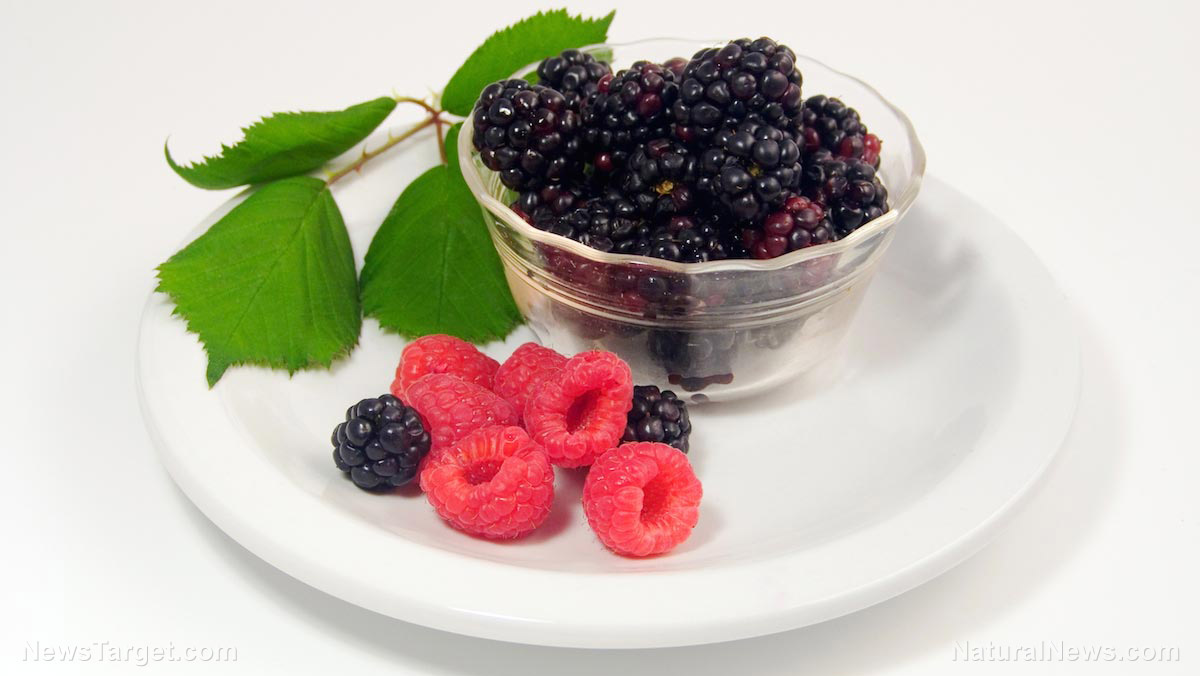
It is often said that presentation is everything when it comes to meals, but there’s an even better reason to fill your plate with colorful foods. The pigment that gives foods like berries their rich red and purple hues also doubles as powerful protection against cardiovascular disease.
Studies have shown that this pigment, anthocyanin, not only offers antioxidant effects; it also protects people from chronic diseases. Indeed, one of its most impressive feats is lowering the risk of the cardiovascular conditions that take millions of lives each year, such as stroke, heart attack, and atherosclerosis.
In a systematic review that involved more than 600,000 participants, British researchers looked at the impact that dietary anthocyanins had on cardiovascular events. They discovered that those who had the greatest dietary anthocyanin intake enjoyed a 9 percent reduction in their risk of developing coronary heart disease; when it came to death due to heart disease, their risk was 8 percent lower compared to those who consumed the lowest amount of anthocyanin.
The study, which was published in Critical Reviews in Food Science and Nutrition, is the strongest argument yet for increasing your fruit intake. The Office of Disease Prevention and Health Promotion suggests that people eat a minimum of two servings of fruit per day; just 32 percent of Americans reach that goal.
Choose the right fruits
It’s easy to spot fruits that contain anthocyanins because of their red, purple and blue colors. Some of the best sources include strawberries, blackberries, grapes, pomegranates, cherries, blueberries, raspberries and bilberries. They can also be found in red cabbage, eggplant, and purple potatoes. It probably won’t come as much of a surprise to learn that the fruit’s skins contain the most anthocyanins given their rich color, so make sure you also eat the skin – and be sure to choose organic to avoid pesticide exposure. The review’s authors say that just one to two portions of berries per day are enough to get the anthocyanins you need to protect your heart.
100% organic essential oil sets now available for your home and personal care, including Rosemary, Oregano, Eucalyptus, Tea Tree, Clary Sage and more, all 100% organic and laboratory tested for safety. A multitude of uses, from stress reduction to topical first aid. See the complete listing here, and help support this news site.
https://www.brighteon.com/embed/5833241483001
Anthocyanin’s many benefits
The review is supported by several other studies, including one from 2012 that was published in the American Journal of Clinical Nutrition. That study showed a link between a higher intake of anthocyanin and significantly lower systolic blood pressure, arterial pressure, and pulse wave velocity. It also confirmed an earlier study that showed eight weeks of taking blueberry supplements reduced participants’ systolic and diastolic blood pressure by 6 and 4 percent respectively.
In addition, anthocyanins can help prevent neurological disorders such as Parkinson’s and Alzheimer’s disease. They accomplish this by improving the communication between nerves and boosting blood flow to the brain. Their antioxidant effect also means they can stop brain damage caused by oxidative stress.
If you’re still not sold on the benefits of anthocyanins, consider this: They can fight cancer cells by attacking them and spurring cell death, in addition to activating the enzymes that rid your body of cancer-causing substances.
Studies have also shown that consuming foods rich in anthocyanins can lower your insulin resistance and protect beta cells in the pancreas, which helps normalize blood levels. That means anthocyanin-rich fruits can help inhibit diabetes.
Cardiovascular disease continues to be one of the top causes of death in America, affecting 84 million Americans and causing roughly one out of every three deaths. Those are very frightening statistics, so you owe it to yourself and your loved ones to consume more anthocyanins and take other steps known to reduce your risk, like exercising and eating as healthier diet overall.

